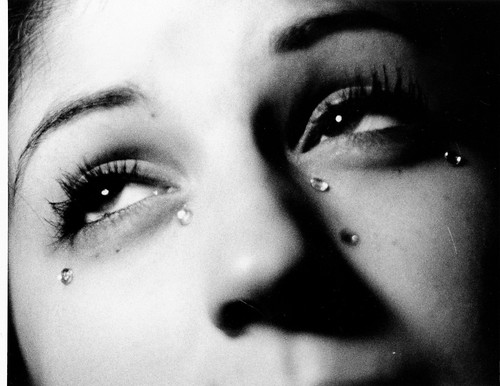One strategy, in particular, helped a lot to keep me on an even keel, most days. You can call it something fancy like prophylactic crying or induced catharsis, but really, I just made myself cry once every few days. Okay. Now that I've actually typed that, it reads a bit nutty. Stick with me, for a minute.
Cathartic crying has long been believed to be an essential piece of well-being, to the extent that some believe bottled-up emotions due to a lack of crying can actually lead to disease. The research on the therapeutic use of crying has produced mixed results. Retrospective, self-report studies often support the idea that crying brings relief and rejuvenation. On the other hand, controlled experiments involving emotional crying often led participants to feel more negative emotions. Many studies have also linked more frequent crying to positive health outcomes (note: just correlation, not causation).
I first came across the idea of therapeutic crying many years ago after a rough break-up. A good friend gave me the book, "How to Heal a Broken Heart In 30 Days" by Howard Bronson and Mike Riley (highly recommend it!). On Day 2 I was encouraged to "cry till I was dry." I was eager to be a good student, so I promptly popped the saddest song of the moment into the cd player (Jeff Buckley - Last Goodbye) and got to crying. I repeated this odd behavior every morning for the next week or so. This is what I noticed: Before "crying it out," I often became weepy at inopportune moments at work and had a difficult time controlling my emotional responses to daily annoyances or frustrations. Once I started getting my tears out first thing in the morning, I was less reactive during the day. It took a while to feel less foggy, but I began to feel more like myself and in control of my emotions.
I hadn't thought about this technique for a while, but was reminded last May after watching the series finale of The Office. I bawled my eyes out and the following day, I felt eerily peaceful. This was eerie, because most days I was barely holding it together as I rode the crazy hormone ride of my pregnancy. I continued the experiment by watching the finale several more times in the same week, and I really did feel more in control. Once the effects of that show wore off, I continued to seek out shows that would bring me to tears.
This kind of induced catharsis has become a fairly intentional practice for me. I try to get my cry fix about once a week (recent inducers include Call the Midwife, Parenthood, and the Olympics). I have no way to scientifically prove it, but I think I feel better, and do better, after a good cry. Like the vent on a pressure cooker, I feel it gives me an outlet to release whatever emotions have been building so that I can work back towards a clean emotional slate.
So...feeling stressed? Out of sorts? Give it a try. Get your cry on.
Like what you're reading? Sign up for my Good In, Good Out E-Newsletter: A steady diet of good stuff to fuel your soul, mind, and body!
You can also sign up HERE if you are not able to see the form, below.
Subscribe to the Good In, Good Out newsletter:
* indicates required
Image credit: Samantha Jade Royds, cc license
Sources:
For everything you've ever wanted to know about crying - and then some - check out:
Vingerhoets, Adrianus Johannes Josephus Maria, and Randolph R. Cornelius, eds. Adult crying: A biopsychosocial approach. Vol. 3. Psychology Press, 2001.
For a quick, accessible read about crying, try this article at HowStuffWorks.

If only we all looked as serene when crying as the chosen photo!
ReplyDeleteThis is probably a really good strategy, because you are acknowledging the pain/other overwhelming emotion, giving it space to happen which is really the healthiest way to recover/cope. If you never deal with it, you probably end up stuck in an emotion for longer than you need to be.
I've never really been a crier though I certainly feel good after a good one. I think I did in the last two weeks. I was trying to hold it back all day and right - you end up reacting to everything. I finally gave myself some space to cry and then a few foggy minutes later I was able to keep going and not be so reactive.
I also find writing in a journal helps me. Sometimes you end up doing both at the same time but either way, you are giving yourself space to feel which is a good thing!
Love your story, Rayna. Writing it out is such a great strategy, too! Time and space for emotion seems to be the common thread. :)
ReplyDelete